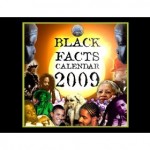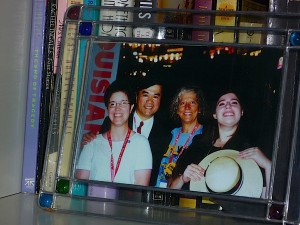
Hello, readers –
Well, I’m delighted to report that authorial blandishment has once again borne fruit: Askhari Johnson Hodari, Ph.D., author of the newly-released book to name-seeking writers, The African Book of Names (published by HCI Books), has very kindly agreed to share her terrific insights with us today. Specifically, she will be giving us some tips on how to go about naming a character.
I couldn’t be more thrilled: Askhari is absolutely tops at this, as anyone familiar with her latest book could tell you.
I just can’t put it down, actually. In addition to offering an absolutely fascinating list of more than 5000 names, indexed by character attribute (don’t you wish that every name book had the foresight to do THAT?) and region of origin, The African Book of Names offers in-depth advice on how to go about picking a name. Here’s the publisher’s blurb:
The African Book of Names: 5,000+ Common and Uncommon Names from the African Continent offers readers names organized by theme from 37 countries and at least 70 different ethnolinguistic groups. Destined to become a classic keepsake, The African Book of Names shares in depth insight about the spiritual, social, and political importance of names from Angola to Zimbabwe. The most far-reaching book on the subject, this timely, informative resource guide vibrates with the culture of Africa and encourages Blacks across the world to affirm their African origins by selecting African names. In addition to thousands of names from north, south, east, central and west Africa, the book shares:
• A checklist of dos and don’ts to consider when choosing a name
• A guide to conducting your own African-centered naming ceremony
• A 200-year naming calendar
As someone who tried desperately to convince her best friend from college to name her second child Harpo — how great a childhood would that have been, eh? — instead of Joe, the name lists fascinate me. My favorites at the moment are the Azanian name Chireshe (pronounced chee-REH-sheh, the book informs me), which means He mixes speech with little bursts of laughter — how charming is that? — the Nigerian Iyora (ee-YOH-rah), I am not a stranger to this community, and the Camaroonian Gukaa (goo-kah), the mouth talks a lot. If I had to christen this blog right now, I would choose these.
I’m going to stop my mouth from talking a lot and let you move on to a guest blog that I think everyone will find extremely helpful. Before I step aside, however, I should mention that THE AFRICAN BOOK OF NAMES is available in bookstores, at Powell’s (for those of you who prefer to support indie booksellers), as well as on Amazon. On the latter, you may also pre-order Askhari’s next book, Lifelines: The Black Book of Proverbs, due out in November from Random House’s Broadway. (With a forward by Archbishop Desmond Tutu!)
One more word before I go: I sincerely hope that all of you will give some serious thought over the weekend to how you go about naming your characters, what challenges you have encountered, etc. We’re going to be talking about naming for the next few posts, culminating in one of our valuable Let’s Talk About This segments, so please think about what you would like to share with the Author! Author! community.
Take it away, Askhari, and thank you for sharing some of your strategies with us!



People always call me for names. And not just for baby names, either. I help people come up with memorable, meaningful business and organization names, titles of stories, books, events and programs. And, characters. Characters. I love naming characters. So, I am no expert or anything, but I do know at least…
10 Things to Do When You Are Naming a Character
1. Give your characters names that tell readers something about the character.
For example, a feminist character may keep her maiden name, or hyphenate her name. She may give her daughters androgynous names like Drew, Alex, or Jesse. A formal character would prefer to be called by the formal form of his or her name- William versus Willie, or Constance versus Connie.
Whenever you choose a name, I recommended that you look up the name’s meaning to ensure the name either compliments, or does not conflict with the message you are trying to send.
2. Select names that are both age and time period appropriate.
A character’s name should give the audience clues to the age of the character. Do the names Beatrice, Victoria or Katherine sound like appropriate names for teenagers?
Albert, Alfred, Clara, Doris, Elton, Gladys, Rudolph, Helen, Lillian, Ralph, Sarah and Sadie are examples of old-fashioned names. Yet, some old fashioned names like Anna, Emma, Grace, and Hannah are now trendy. Christopher, Elizabeth, Matthew, and Michael are examples of names that never seem to age.
When selecting a name, I suggest you review old census records, looking for names that were popular in your character’s time. The Social Security site is also a good resource for this type of research.
3. Choose culturally appropriate names to help make the character and story realistic.
Character names should reflect the cultural world of the character. Names like Yang, Ito, Gupta, Lopez, Smirnov, Johansson, and Rossi provide immediate clues as to ethnic identity. However, America’s political reality is such that Blacks frequently carry the surnames of their former slave-owners; and Asians and Jewish persons have historically changed or altered their names so the names were more socially acceptable.
Some characters will have first and last names that reflect different or blended cultures. Christina Yang, and the real world names, Spike Lee and Shaquille O’Neal are examples. Culture can also refer to a non-race specific location- would you expect to have a “Billy Bob” in the middle of Boston? Or, would you expect to find someone named Sergei in Tuskegee, Alabama? No. Not really.
4. Make sure the name is pronounceable.
Say the name aloud several times to make sure it is something you and readers can pronounce readily. For example, I never really knew how Sethe was pronounced until I heard Toni Morrison read from her book. Was it like Seth, or Sethay, or Seththe. And, how would you pronounce Rande—is it Randy, or Randeh, or Rand?
Don’t make your audience walk around for four years pronouncing a character name incorrectly. Why spend time choosing a name readers don’t know how to pronounce? Don’t do it. Just don’t. But, if you do decide to use a name with an ambiguous pronunciation, write something to let the audience know how to pronounce the name. For example, “Rande hated her teacher for pronouncing her name wrong, like Randy, instead of like Randay.”
5. Choose names that are “character” appropriate.
You wouldn’t expect the plumber to be named Joseph, Frederick, or Edward. But Joe the plumber, and Fred the plumber and Ed the plumber sound realistic. Can you imagine a bus driver, or gravedigger with a “rich-sounding” name like Danforth, Witherspoon, Sinclair, Fairchild, or Maximillian? Could be interesting though…
6. Employ syllabic variety.
The length of the first and last name should vary. Tom Sawyer, Erica Kane, Huckleberry Finn, Molly Bloom, or Lennie Small, for example. For some reason, which I cannot explain, variety makes names more pleasing to the ear and easier to remember.
There are many resources for first names, but for last names/surnames, you can visit Nuts and Bolts Filmmaking or download a list here.
7. Choose names that are gender appropriate.
I really, really, really like androgynous names (and repetition). Wasn’t Scout Finch a great name for a girl? However, I would not be a good guide if I didn’t tell you things like short, one-syllable names with hard consonants are usually seen as masculine. Take Jake, Kurt, Max, and Dirk, for example. Likewise, folk seem to feel that names with soft multiple syllables suggest femininity- names like Heather, Gina, Sharon, Jennifer, and Suzy.
Sometimes names imply gender. There is a reason fictional male detectives have names like: Alex Cross, and Sam Spade; and fictional heroines have names such as Scarlett O’Hara, Anna Karenina, or Annabelle Lee. (For a list of male character names, please visit here.)
8. When writing for a novel or television show that is populated with numerous characters, make sure the character names are distinct.
There are a few ways to make sure your audience does not get confused: 1) make sure character names start (and end) with different letters; and 2) avoid names that sound alike (i.e.Paul and Saul; Tim, and Tom).
The Color Purple is a good example of a well-named cast of characters: Celie, Mister/Albert, Shug, Harpo, Sophia, Nettie, Kate, Bub, Squeak and so on. With the possible exception of Celie and Nettie, none of the names sound too similar.
9. Save good names for the major characters.
Don’t waste a great name on a minor character, a walk on character; or an extra. What would have been the point of having an extra, walk-on, or one line character named Tony Soprano, Rhett Butler, Stringer Bell, Jay Gatsby, Holden Caulfield, Vic Mackey, or Teacake?
10. Keep a handwritten or electronic list of potential character names.
Keep a running list. Whenever you hear a name you like, write it down. Save it. For instance, I had a student once named Harch Decar. Great name- right? You know I am going to change the spelling to something like Harsh DeKar and use that name one day.
So, see? I actually do have a list of some names I plan to use one day. Wanna hear some? Here they go: Ash, Blackbelt, Cade, Cairo, Chata, Cyri, Khaler, Kori, Queenie, Rizi, Ryder, Spell, Tansy, Tantrum, York and Zella. Now, I trust you not to use them before I do- okay?
9 Great Character Names (FROM LITERATURE, TELEVISION AND MOVIES)
1. Sula Peace
2. Yuri Zhivago
3. James Bond
4. Hannibal Lecter
5. Bigger Thomas
6. Easy Rawlins
7. Sherlock Holmes
8. Ishmael (Moby Dick)
9. Celie
8 Things To Avoid When Naming A Character
1. The obvious.
You know the names: a gardener named Herb Green; a nun named Virginia, a lawyer named Justice Scales; an accountant named Matthew…
2. Similar sounds.
Please, please, please, don’t end the first name with the same sound as the last name, and try not to name the characters with names that start with the same syllable. Even though spellings may differ, names can still sound the same. Take, for examples, the names Jack and Zachary; Mary and Terry; and Sam and Tammy.
3. Overly exotic names.
Okay, I am talking about names that are usually reserved for strippers, I mean exotic dancers, professional sex workers and soap opera stars: Remington Steele, Shy Love, Johnny Wad, Trixie Rain, Jack Hammer, Bunny Bleu, Cookie Anderson, Angel Long, Summer Haze, etc.
4. Alliteration and rhyme.
Sometimes, it is difficult to take names beginning with the same sounds seriously: Candy Cane, Mandy Matthews, Ted Thomas, Shay Sweet, and Vicky Vet. Again, these types of names bring exotic dancers (strippers) to mind. Or cartoon characters- Lois Lane, Clark Kent, Peter Parker, Lana Lang, Lex Luthor, and Vicky Vale.
Rhyming names are also sometimes difficult to take seriously- Ned Ted, Sally Rally, and Chet Wet. These types of names are appropriate for children’s fiction (think Dr. Seuss), but adult work — not so much…
5. Names with negative or precarious connotations.
Did you hear about that three-year-old kid named Adolf Hitler? His sister was named Aryan Nation. And, even though Barack Obama’s middle name, Hussein, means handsome, folk will forever tie the name Hussein to Saddam Hussein.
Other examples of names that have negative connotations include Butch, Pansy, Fanny, Gaylord, Dick, etc.
6. Initials that spell something undesirable or negative.
Avoid this especially when the spellings of the initials don’t relate to the character or to the story, and aren’t going to be used. Take Sarah Tanya Dennison, for example.
Other combinations you may wish to avoid: ASS, BAD, BUM, DIE, DUD, DUM, FAG, KKK, PIG, RAT, RIP, STD.
7. Unnecessary A’postroph’e’s.
Don’t even get me started on unnecessary a’pos’trophes. You know the names: Ta`Qwan, Ga’Nay, D’Angela, Che’nille… What does the a’postrophe actually add to a first name? And, why do this to the audience? Apostrophes are just messy. Messy, I say…
8. Names that end in “s.”
This tip seems trivial until you find yourself having an awkward time writing the possessive form of the name that ends in “s.”
7 of the Worst CHARACTER NAMES (FROM LITERATURE, TELEVISION AND MOVIES)
1. Bucky Wunderlick
2. Ralph Malph
3. Renée Rienne
4. Bob Loblaw
5. Steve Urkel
6. Tess of the D’Urbervilles
7. Captain Marvell
6 Resources to Help You Choose a Name for a Character
1. Name books
2. Soap operas
3. Phone book
4. Bible
5. Television and movie credits
6. Comic Books
5 Electronic Resources to Help You Choose a Name for a Character
1. Muse Names.
40,000 names classified by country or cultural origin. What turns a long list into a powerful tool for writers is the way it selects a name to match a keyword.
2. Name Maker LE
Millions of possible combinations of first and last names.
3. Baby Name Genie
“Granting wishes for the ‘perfect’ baby names.”
4. Parenthood.com
A random name generator that allows you to search by first letter.
5. Sandra Petit’s site
Another random name generator.
4 Things to Consider When Naming a Character
1. Theme, motif.
Themes can add extra layers to the story and enhance the overarching themes of the book, movie, or novel. Often, character names can help clarify theme.
Take, for example, the novel To Kill a Mockingbird. Several of the characters had names relating to birds: Atticus Finch, Tom Robinson.
In the movie Rocky, the characters have names that represent strength: Rocky, Apollo Creed. A god versus an indestructible force.
In Song of Solomon, several character names (and the title) are taken from the Bible: Reba, Pilate, Hagar, Magdalene, First Corinthians, and Ester. Morrison also had characters named Sweet, Circe, and Sing Byrd. What was the significance of these names? Figuring out the significance of character names also gives the audience something (fun) to do.
2. The Character’s Family.
If the parents of your character are very traditional, the characters should probably have more olde English or Victorian names like James, Mary, Elizabeth or Michael. Or, if the parents are religious, their children would likely have names from the Torah, the Quar’an, or the Bible. If you find character siblings named Diana, Smokey, and Marvin, isn’t it likely the parents are Motown fans?
3. Nicknames.
If your character is a main character, consider a nickname, or term of endearment to show the relationship of the character to other characters, parents and intimates, in particular.
4. Name Fame.
There are times when certain names have positive connotations because of a celebrity or famous person or character. For example, the name Kent now connotes strength, Elizabeth now sounds queenly; John Paul connotes purity, and Abraham or Lincoln suggest honesty.
3 Things People do too much of
1. Add “y”s to a name, unnecessarily.
Nychole, Mykenzie, Karsyn, Miakyel (for a male), etc.
2. Ruin a perfectly good name by adding “sha”, “ra”, “kwa” or “la”, etc.
For example, Kwatina, LaRenee, LaQuincy, DeShane…
3. Try to be too clever.
For instance, naming a writer Auther Book; naming a vegetarian Lett Us; naming an alcoholic, Hein A. Ken.
2 Things people don’t do enough of when naming characters
1. Use places and or things as people names.
There are an abundance of lakes, cities, mountains, numbers, and other constructs that would make great names. Think Africa, Britain, Chad, China, Cuba, Egypt, Everest, Freedom, Georgia, India, Kenya, London, Mali, Nile, Paris, Seven, and Sahara.
2. Use androgynous names for complex characters.
I just love androgynous names: Adrian, Bailey, Casey, Jordon, Justice, Parker, Phoenix, Riley, Sage, Shay, and Sidney. And, so on…
1 THING NO ONE ELSE IS GOING TO TELL YOU
1. Everything I have shared here can be meaningless in a matter of minutes.
For example, who expects a “brother” to be named Bentley Fonzworth? I love the idea of creating a working class man with a wealthy, elegant sounding name. And, even though I said to avoid alliteration, Sam Spade and Marilyn Monroe are effective examples of times when alliteration works. And, my own name rhymes, but I love it—don’t you?
I could go on and on and on about names, but I am going to stop here, so if you want to know more about names, you could check out my recently released book, The African Book of Names. Naturally, the book is filled with African names, but you there is also information you might find useful like a guide to naming ceremonies and a checklist of what to consider when choosing a name.



 Askhari Hodari, Ph.D., is a Birmingham-based freelance writer; former Black Studies professor, and the author of The African Book of Names (Health Communications, Inc., 2009); and Lifelines: The Black Book of Proverbs (Broadway Books, October 2009). She also developed the Black Facts Calendars.
Askhari Hodari, Ph.D., is a Birmingham-based freelance writer; former Black Studies professor, and the author of The African Book of Names (Health Communications, Inc., 2009); and Lifelines: The Black Book of Proverbs (Broadway Books, October 2009). She also developed the Black Facts Calendars.









 is not the same thing as this
is not the same thing as this 








